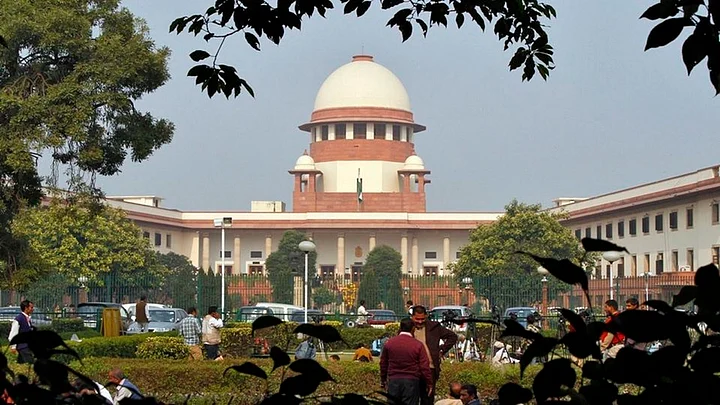Two months of nail-biting suspense drew to a close today with the Supreme Court delivering its judgement on the National Judicial Appointments Commission (NJAC) Bill, a flagship scheme of the present government, ostensibly aimed at ending the “Collegium system” which was considered to be the first of the major ills plaguing the judiciary.
A bench comprising Justices Khehar, Lokur, Chelameswar, Joseph and Goel, by a 4:1 majority, struck down the Bill, holding that it violated the “basic structure” of the Constitution by making grave inroads into the independence of the judiciary. The Bill would have wrested the power of appointment from the exclusive control of the judiciary and given a significant stake to the political executive. This, its supporters contended, was imperative to ensure that judicial accountability – to Parliament and the will of the people – doesn’t remain an illusory ideal.
Quis custodiet ipsos custodies (Latin) which literally translates to “Who will guard the guards” has been an oft-repeated, piercing question hurled at the Indian higher judiciary which has been accused of being a cabal because “judges appoint themselves”. This, accusation, many in both the Bar and the Bench point out with near-unimpeachable evidence, is not entirely baseless.
It began in 1993, when the Supreme Court put in place the “Collegium system”, in which the Chief Justice of India and four senior-most judges of the Supreme Court had the prerogative of deciding appointments to the High Courts and the Supreme Court. Some jurists have contended that by arrogating the power of judicial appointments to itself, the judiciary impermissibly strode outside the mandate provided to it by the Constitution. Others have justified the move by reminding us of the infamous “supersession of judges” episode in the run-up to the Emergency, when Indira Gandhi attempted to pack the courts with judges “committed” to the ideologies and politics of her government.
The first challenge to the Bill was mounted by the Supreme Court Advocates-on-Record Association (SCAORA) in August 2014, and it set off almost a gladiatorial contest between the government and the judiciary. The proceedings, which went on for 31 days, saw the government, claiming superiority by dint of having the people’s support (political parties across the spectrum had voted for the Bill, and 20 states had ratified it) and launching into a no-holds-barred attack on the judiciary. Past instances of alleged judicial corruption, some of them even straying into vicious personal attacks, were dredged up.
The Bill’s opponents, while agreeing that the appointments process did have certain flaws, countered the government by claiming that its intention was to manipulate the judiciary. They pointed out that the way in which the government scuttled the elevation of Gopal Subramanian to the Supreme Court in June 2014 bore ample testimony to the further damage it could inflict upon the judiciary, and thereby, the Constitution itself. This allegation was termed by their rivals as unsubstantiated, since Subramanian had himself withdrawn his consent.
This isn’t the first time that the present political dispensation has attempted to change the method of judicial appointments. In its earlier avatar, when the Vajpayee government was in power, it constituted the National Committee to Review the Working of the Constitution, which, in its report submitted in 2002, recommended several ways in which this could be done, without encroaching upon the independence of the judiciary. That government was voted out of power in 2004, before those recommendations could be implemented.
At the time of writing, today’s judgement is yet to be made publicly available, so one can only speculate about the likely reasons the court has provided. However, it would perhaps be difficult to accuse the judiciary of intransigence, because today’s bench has agreed to hear, on November 3, submissions on how the Collegium system can be improved.
(At The Quint, we question everything. Play an active role in shaping our journalism by becoming a member today.)
